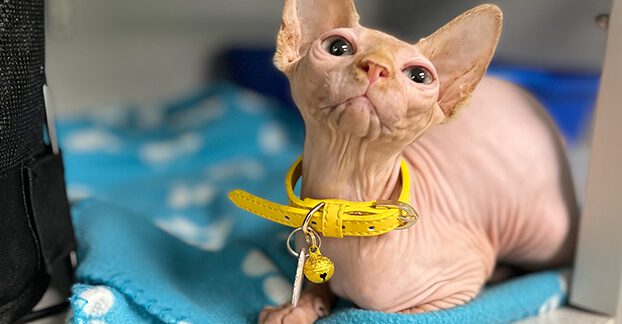Food Allergies – How To Test and What To Feed Your Cat or Dog

Pet food marketing companies want you to believe that fancier bags, higher prices, or novel flavors will cure your pet of all itches. Food sensitivities come in many types and severities and are often compounded by other problems that are also causing itching. If you feel like you have tried everything out there and several food changes have not helped or only helped a little, we are here to help you understand what your pet needs.
Aren’t Most Pets Allergic to Corn or Chicken?
Food allergies are not limited to “grains” or chicken alone, many pets are allergic to multiple proteins (chicken, fish, peanut butter, lamb, etc), some grains and even to yeast (an ingredient in many treats and supplements). Many allergic pets do better on limited ingredient or fish-based diets, but if they truly have food allergies, using over-the-counter food is like throwing a dart at a dartboard – you may or may not pick the right food. The best way to know if your dog has a food allergy is to do an 8-week food trial where they are fed a prescription hypoallergenic food for 8 full weeks with no other foods, treats, or table scraps entering their mouth.
What is Special About Prescription Hypoallergenic Food?
If your pet is going on a food elimination diet trial, the doctor will most likely be recommending a hydrolyzed diet. The proteins in hydrolyzed diets are broken into smaller pieces so that your pet’s body will not be able to bind to those proteins and create an allergic inflammatory response. Your pet needs the vital nutrition of protein, but with a food allergy, those proteins can often cause inflammation and itching. Hydrolyzing these proteins before your pet eats them allows them to get the nutrition they need without the inflammatory process! Only a few facilities produce prescription hypoallergenic foods and those facilities go to great lengths to completely clean all equipment on the production lines prior to making and packing the product. Over the counter foods (even the well-advertised brands) have been shown in tests to still have soy, chicken, and other food particles in their diets even when labeled as “soy free” as these foods are made and bagged on equipment that processes other foods without a full clean in between. To truly know that your pet is not being exposed to ingredients that can cause allergies, they need to have a diet trial with prescription hypoallergenic food.
My Pet has Been Prescribed a Food Elimination Trial. What Does that Mean?
The only accurate way to test your pet for food allergies is through an elimination diet trial. Blood and saliva tests on the market simply aren’t accurate and often cause you to avoid things that your pet needs while still feeding them things that they are allergic to. A food elimination trial is a diagnostic test to determine if food ingredients are a cause of your pet’s discomfort. Your pet’s doctor will prescribe a strict diet of hypoallergenic food and treats to be followed for at least 8-12 weeks. They will guide you as to how to transition your pet onto this regimen, but you must be absolutely sure that they have no access to other pet’s food, people’s food, flavored toothpastes, flavored chews or even licking other pet’s bowls. In order for an elimination trial to work as a diagnostic test, it must be very strictly followed. Prescription hypoallergenic diets are properly balanced – your pet will not need supplements or other additives to these products. If your pet does not like the flavor or seems hungry, talk with your veterinarian and they will guide you through the proper changes to make without affecting the results of this trial. Once your pet has been on the prescribed diet trial for 8 weeks, if they are doing well, the doctor may discuss with you adding in one simple ingredient at a time if you would like to find out exactly which ingredient they are allergic to. However, this means that you may disrupt the balance and make them itch again so many clients choose to keep their pets on the diet that helped them feel good again.
What Food Can I Buy at the Pet Store if I Think My Pet has Allergies?
It is very important to realize that just switching the food your pet is on from one over-the-counter product to another (no matter how expensive) is not enough to know if food allergies are their problem – you may just have picked the wrong food to switch to. Also, as mentioned above, over-the-counter foods are made in the same facilities as other foods and often have cross-contamination of allergen ingredients. Using prescription allergy foods makes the timeline much shorter to diagnosing whether it is a food allergy or not. Yes, prescription foods are expensive, but they often reduce or eliminate the need for costly medications for your pet. Please consult your veterinarian before switching your pets’ food. If you choose to switch over-the-counter foods, please remember to slowly transition by mixing the new and old food for at least a week and to never purchase grain-free foods as grain-free foods cause life-threatening heart disease in dogs so should be avoided at all costs.
About Us
The Healing Paws Veterinary Care promise is a thorough and kind experience. Taking the time to listen to you (and your pet) while being thorough in our examination, pain assessment and diagnostic testing means that we can find answers and solutions that keep your friend living longer and more comfortably.
